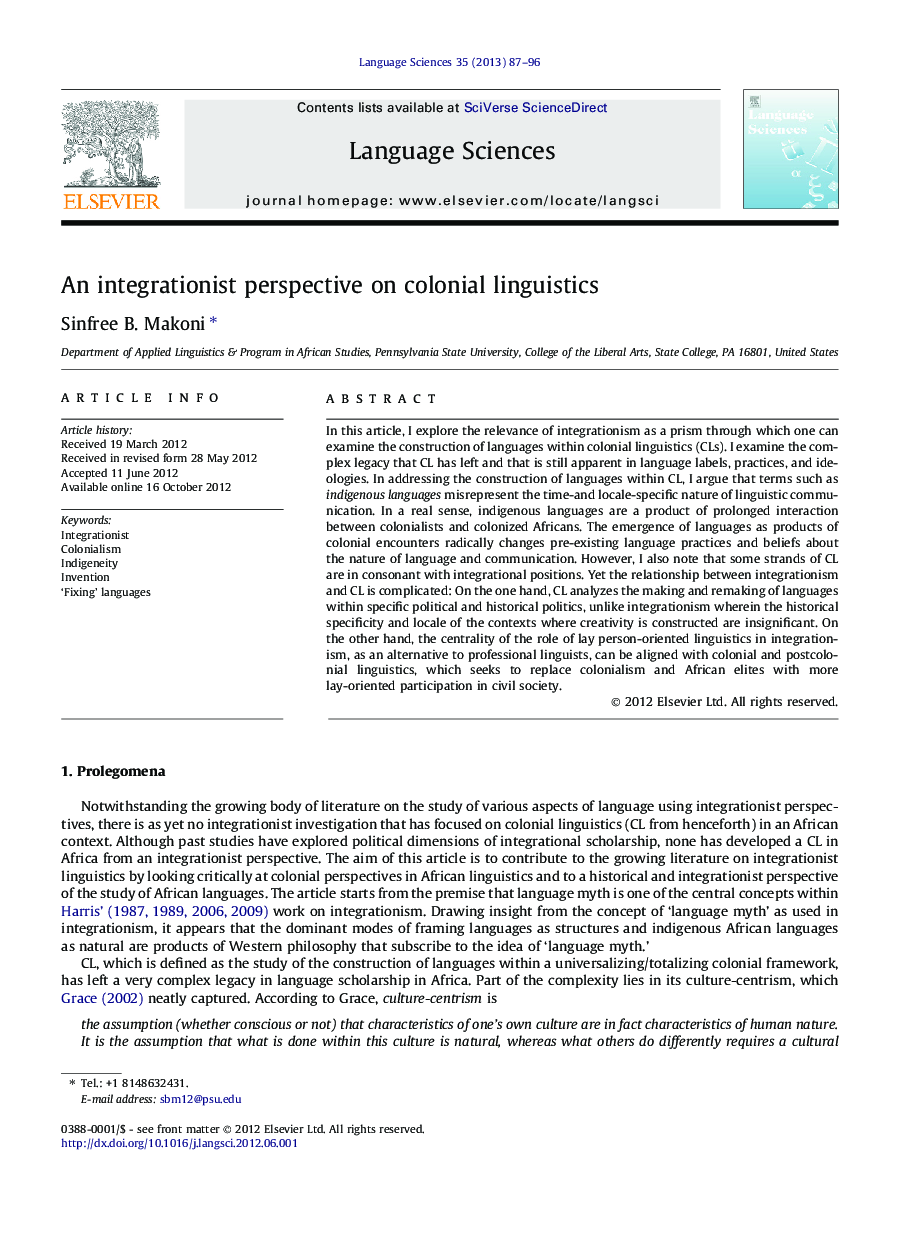| Article ID | Journal | Published Year | Pages | File Type |
|---|---|---|---|---|
| 1103345 | Language Sciences | 2013 | 10 Pages |
In this article, I explore the relevance of integrationism as a prism through which one can examine the construction of languages within colonial linguistics (CLs). I examine the complex legacy that CL has left and that is still apparent in language labels, practices, and ideologies. In addressing the construction of languages within CL, I argue that terms such as indigenous languages misrepresent the time-and locale-specific nature of linguistic communication. In a real sense, indigenous languages are a product of prolonged interaction between colonialists and colonized Africans. The emergence of languages as products of colonial encounters radically changes pre-existing language practices and beliefs about the nature of language and communication. However, I also note that some strands of CL are in consonant with integrational positions. Yet the relationship between integrationism and CL is complicated: On the one hand, CL analyzes the making and remaking of languages within specific political and historical politics, unlike integrationism wherein the historical specificity and locale of the contexts where creativity is constructed are insignificant. On the other hand, the centrality of the role of lay person-oriented linguistics in integrationism, as an alternative to professional linguists, can be aligned with colonial and postcolonial linguistics, which seeks to replace colonialism and African elites with more lay-oriented participation in civil society.
► Intergrationism and colonial linguistics. ► Language labels, practices and ideologies. ► Integrationism, locale, and historical specificity in colonial linguistics. ► Lay person, elites and liberation Linguistics.
